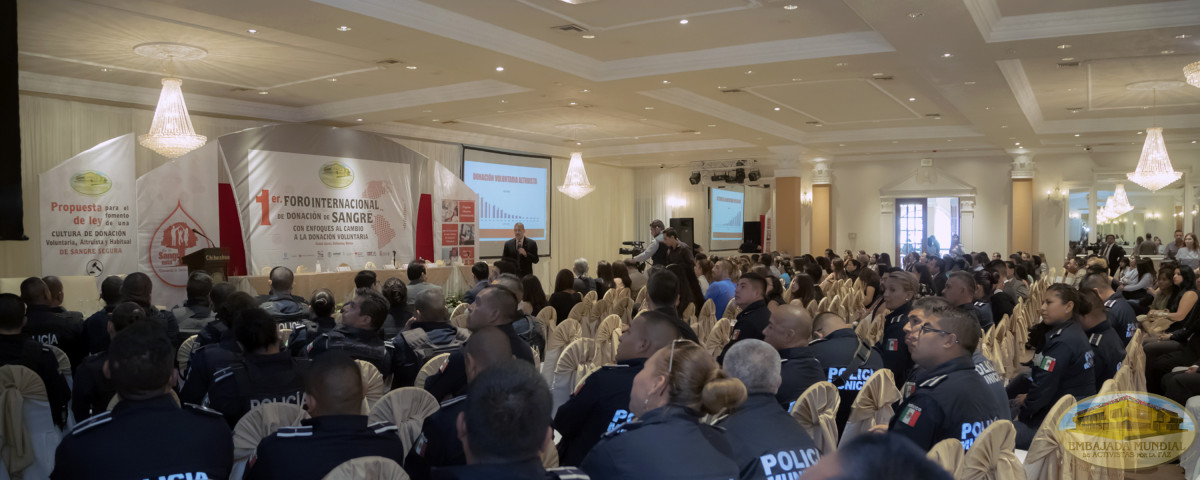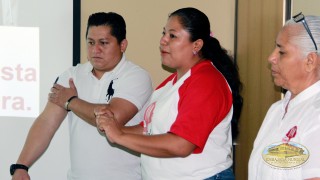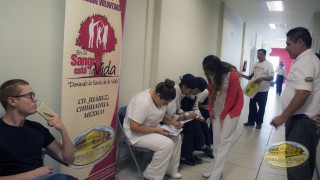Actions to increase a culture of voluntary blood donation
With the aim of sharing experiences in the search for solutions to the problem of blood donation by replacement, on June 23, 2017, in Juarez, Chihuahua, Mexico, the First International Forum of Blood Donation aimed at the Change of Voluntary Donation.
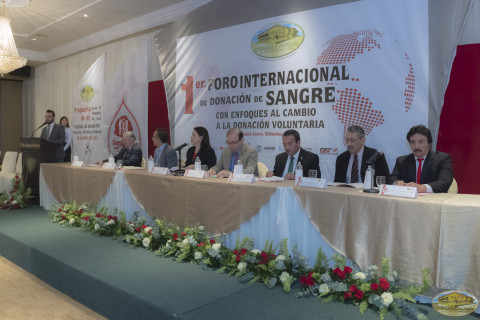
This event was organized by the Global Embassy of Activists for Peace (GEAP) and the Health Secretary of the State of Chihuahua, Mexico, represented by Arturo Valenzuela Zorrilla, who opened the event, followed by a lecture given by the national coordinator of the GEAP in Mexico, Francisco Javier Guerra.
The forum counted with the participation of international specialists that contributed with their knowledge and experiences focusing on changing family or replacement donation for voluntary blood donations because they are safer for the recipient.
Education based on values
To this end, the GEAP presented the Integral Program “Life is in the Blood”, which is a social intervention project designed to cooperate with the formation of a culture of voluntary, altruistic and habitual safe blood donation, through the Educational Communication Program “Life is in the Blood” (PEC-LIFE).
This program, as stated by Ruth de Bermudez, promotes an education based on principles and values of the human being, which are indispensable so that blood donation can become an act of love towards others, where values such as kindness, solidarity, responsibility, and fraternity are expressed. This will allow the volunteer donor to do everything necessary to make their donation effective and safe.
Focusing on voluntary donation
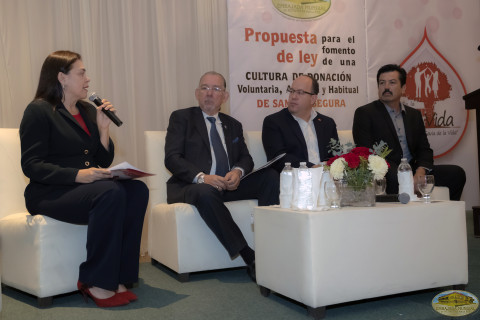
A panel of experts considered various actions that could contribute to the achievement of the goal proposed by the World Health Organization (WHO) to achieve 100% voluntary donations by 2020.
Gilberto Grijalva, director of the Chihuahua State Blood Transfusion Center (CETS), presented figures for the year 2016: Of 73,000 units collected, more than 60,000 are donations by replacement, and 12,500, or 16%, are voluntary donations. Grijalva pointed out that to achieve 100% voluntary donations of blood, the action to be taken is to increase extramural campaigns directed at companies, universities, and other institutions.
Martín Gómez, United Blood Services Donor Recruitment Manager of El Paso, Texas, focused on the need to train volunteers as recruiters who sensitize citizens to increase voluntary donations.
Ricardo Winter, vice president of the Red Cross of the Dominican Republic, emphasized the importance of promoting blood donation as an act of love for others. Winter shared the experience of the Red Cross in continuing training volunteers who act in times of emergency.
Everyone’s commitment is indispensable
José Ramiro Cruz, the coordinator of the international affairs committee of the Ibero-American Cooperative Group on Transfusion Medicine, Washington DC, said that there must be a real commitment of all sectors involved: The State must comply with established policies to ensure efficiency Throughout the blood transfusion process; Transfusion centers should strive to give the best care to the voluntary donor and the population should be educated on the importance of voluntary and repeated blood donation.
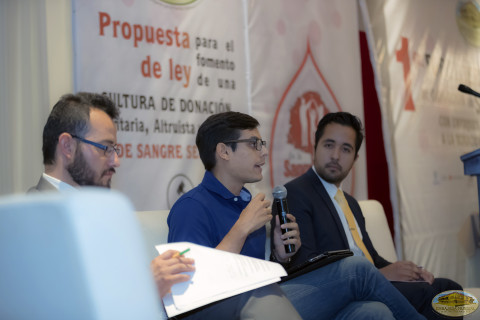
The event closed with the participation of Esteban Buch Sánchez of the Complutense University of Madrid, Spain, and Jorge Acosta Favela, National President of the Mexican Association of Doctors in Training (AMMES. AC) with whom the GEAP signed a Cooperation Agreement with the objective of supporting the projects that each institution develops.
